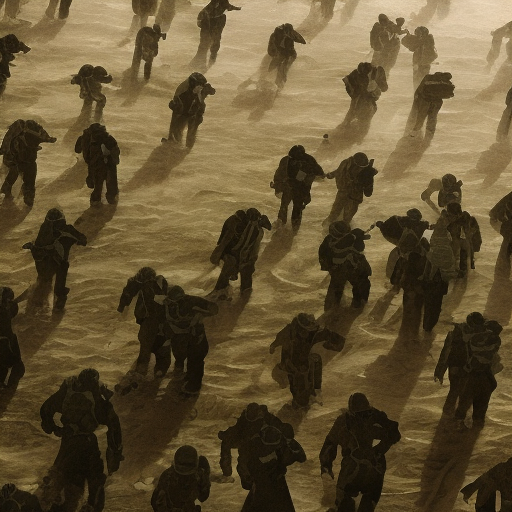Summary of “Platoon” by Oliver Stone
One-line summary:
“Platoon” is a gripping war film directed by Oliver Stone that explores the brutal realities of the Vietnam War through the eyes of a young soldier.
Main Cast and Crew:
- Director: Oliver Stone
- Writer: Oliver Stone
- Key Actors: Charlie Sheen as Chris Taylor, Tom Berenger as Sgt. Barnes, Willem Dafoe as Sgt. Elias, Forest Whitaker as Big Harold, John C. McGinley as Sgt. O’Neill
- Music Director: Georges Delerue
- Director of Photography: Robert Richardson
- Producers: Arnold Kopelson, Oliver Stone
Plot:
“Platoon” follows Chris Taylor, a young and idealistic soldier who volunteers for combat duty in Vietnam. As he joins a platoon, he quickly realizes the harsh realities of war. The platoon is divided between two sergeants: the ruthless and morally compromised Sgt. Barnes, and the compassionate and morally conflicted Sgt. Elias. Chris finds himself caught between their conflicting ideologies.
The film depicts the horrors of war, showcasing the brutality and dehumanization that soldiers experience. Chris witnesses atrocities committed by both the Viet Cong and his fellow American soldiers. He forms bonds with his comrades, including the naive and vulnerable Bunny, the philosophical and drug-addicted King, and the wise and battle-hardened Sgt. Elias.
As the war takes its toll on the platoon, tensions rise and divisions deepen. Chris becomes disillusioned with the war and questions the morality of his own actions. The conflict between Sgt. Barnes and Sgt. Elias escalates, leading to a devastating climax that forces Chris to confront the darkness within himself and make a fateful decision.
Themes and Motifs:
“Platoon” explores themes of morality, the dehumanizing effects of war, and the struggle between good and evil. The film delves into the psychological and emotional impact of war on soldiers, highlighting the loss of innocence and the erosion of moral values. It also examines the complexities of human nature, portraying characters who are both heroes and villains, capable of acts of great courage and unspeakable cruelty.
The motif of duality runs throughout the film, with the contrasting characters of Sgt. Barnes and Sgt. Elias representing opposing forces within the platoon. The lush and serene Vietnamese landscape serves as a stark contrast to the violence and chaos of war, emphasizing the beauty that is lost amidst the destruction.
Reception and Legacy:
Upon its release in 1986, “Platoon” received critical acclaim for its realistic portrayal of the Vietnam War. The film won four Academy Awards, including Best Picture and Best Director for Oliver Stone. It was praised for its powerful performances, gritty cinematography, and unflinching depiction of the horrors of war.
“Platoon” has had a lasting impact on cinema, influencing subsequent war films and becoming a cultural touchstone for its portrayal of the Vietnam War. It is often regarded as one of the greatest war films ever made, praised for its authenticity and its exploration of the moral complexities of war.
Recommendation:
“Platoon” is a must-watch for fans of war films and those interested in exploring the psychological and moral dimensions of war. It offers a gripping and harrowing portrayal of the Vietnam War, with powerful performances and a thought-provoking narrative. However, due to its intense and graphic content, it may not be suitable for sensitive viewers.
Memorable Quote:
“Adios, amigo!” – Sgt. Elias












